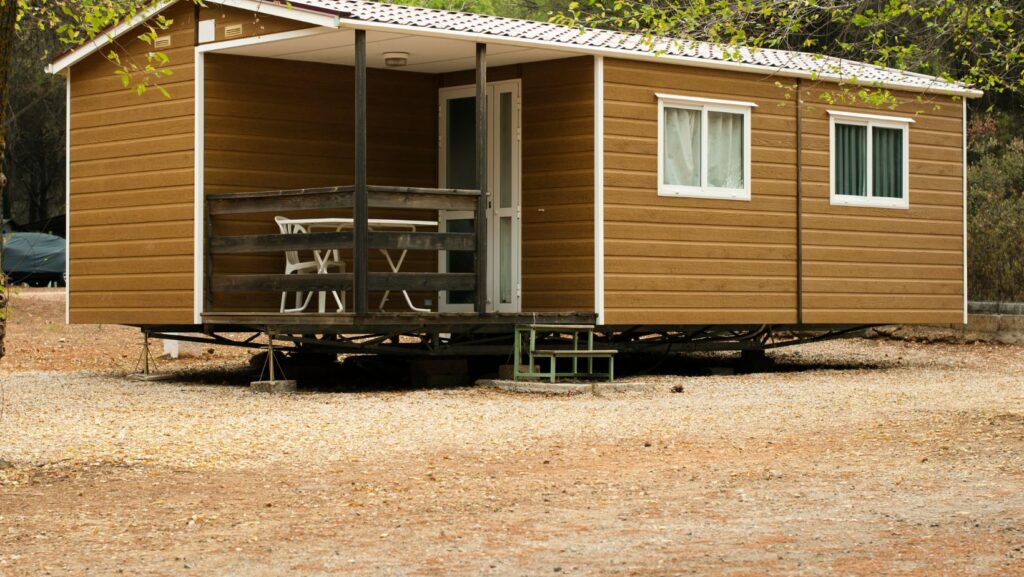Buying a mobile home can be a game-changer for those seeking affordability and flexibility in housing. It’s an appealing option that’s gaining traction in today’s real estate market. But, like any major investment, it’s crucial to understand the ins and outs before diving in.
This article will shed light on the key considerations when buying a mobile home. From understanding the types of mobile homes available to navigating financing options, it’ll provide a roadmap for prospective buyers.
Buying Mobile Home
Examination of various types illuminates the wide range of mobile homes available. Single-wide, double-wide, and even triple-wide models offer diversity in space and design. Buyers may settle on manufactured homes, built offsite and delivered, or they might prefer modular homes, constructed in pieces at a factory before assembly at the desired location.
Unfolding possible financing avenues, buyers may explore traditional lenders, including commercial banks and credit unions. They also might consider personal loans, which often don’t require a down payment. Other options integrate chattel loans, made explicitly for properties that won’t be placed on a permanently affixed basis, and FHA-insured loans—including Title I loans—for individuals who fall within specific income brackets.
Roadmapping the buying process, potential investors can follow a series of steps. They initiate by setting a budget and identifying suitable mobile homes for sale. Concurrently, they need to seek pre-approval from the lender to learn exactly how much they can afford. The next phase includes carrying out a walk-through and securing an appraisal to assess the home’s value accurately.

If the mobile home matches their needs, buyers can then place an offer. Upon acceptance, they close the deal by signing necessary papers, thereby securing their mobile home.
Essential Tips Before Buying Mobile Home
To maximize the advantages of buying a mobile home and mitigate the inherent risks, prospective buyers must conduct thorough inspections and understand the pricing and financing aspects.
Inspecting the Mobile Home
Before purchasing, conducting an in-depth examination of the mobile home proves paramount in ensuring quality and durability. A thorough inspection essentially involves a comprehensive review of the roof, floors, walls, windows, doors, and plumbing and electrical systems. For instance, a waterproof, firm, and damage-free roof implies a well-maintained mobile home. Additionally, the buyer must inspect for signs of any structural damage such as cracked walls, sagging floors, or water stains on the ceiling. The latter often point to possible leaks, mold, or rot which all call for immediate repair if not total replacement.
Mobile Home Prices and Financing
Understanding prices and financing options can remarkably ease the process of buying a mobile home. Traditionally, single-wide models range from $10,000 to $25,000, while double-wide models start from $20,000, with luxury options exceeding $100,000. On financing, credit unions, banks, and other financing companies provide mortgages specifically designed for mobile homes.

In general, these lenders factor in the borrower’s credit score, income, and loan-to-value ratio. For instance, a favorable credit score of 700 and above favors better interest rates, while a lower score may necessitate higher rates or possibly even disapproval. Abiding by these tips, one can confidently navigate buying a mobile home that matches one’s housing preferences and financial circumstances efficiently.
After Buying: Steps to Settle into Your New Mobile Home
After buying a mobile home, there are a few important steps to help you settle in comfortably and securely. This includes maintaining your new dwelling and fostering a good relationship with the mobile home community.
Mobile Home Maintenance Tips
Maintaining a newly purchased mobile home takes an approach tailored to its unique requirements. From a secure setup to a well-insulated exterior, it’s crucial to prioritizing specific areas for maintenance.
- Thorough Inspections: Regularly inspect the home’s exterior, focusing on elements like the roof, windows, and skirting. Concrete paths around the house offer protection against heavy rain, for instance.

- Efficient Skirting: Maintain the home’s skirting – it not only gives a finished look but also prevents underfloor damage. Mobile homes often have lightweight skirting, which needs regular checks for openings to stop pests from getting in.
- Roof Coating: Ensure a quality roof coating. Experts recommend recoating a mobile home’s roof every couple of years, providing waterproofing and extending its lifespan.
- System Check: Regularly service systems like HVAC (heating, ventilation, and air conditioning), electrical and plumbing, to ensure they’re in optimal condition.

